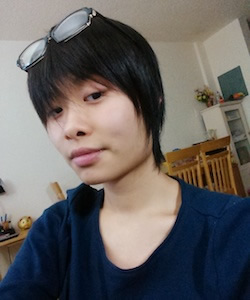Many foreigners believed that atheists make up most of the population in China. Some, however, would arrive at a temple, fascinated by its design, curious about the manuscripts hanging on the walls, and take pictures of the statues and people practicing their religion. What they don’t know is that picture-taking inside a temple without permission signifies an act of disrespect to not only the gods in the temple, but also to the southern Chinese cultural religion.
One must come clean when you go inside a temple. Visitation without intent to pray to the gods is highly forbidden. The person praying must have a sincere heart, offering tributes such as cooked chicken, fruits (mainly apples, oranges, and bananas), pork, fish, rice cakes, and long thread moss algae. After placing the dishes in front of the gods, most people perform praying rituals with incense, asking for good health and happiness as well as success in businesses and education.
When lighting an incense for prayer, traditionally people would hold the incense with their left hand. This is because in ancient China, the Chinese used their right hands to kill animals for meat or for bathroom purposes, and thus left hands are much cleaner and are seen as more respectful toward the gods. After praying, people will stick the incense inside a holder with ashes and let the incense slowly burn until the incense stopper remains. Heightening up the fire on the incense smoke or blowing on the incense to make it burn faster also signify a sign of disrespect toward the gods, showing that the person praying is insincere.
In ancient times, girls who were on their periods were advised to stay home even if they wanted to pray and light incense to the gods. This practice discontinued as modern times did not require girls to kneel and pray holding lighted incense with both hands. In the twenty-first century, methods of praying to the gods varies by different families, ranging from bowing to the gods at least three times to kneeling down and bowing until your forehead touches the ground. After bowing or kneeling, white wines must be poured into little cups, and the person who finishes praying would hold one of the cups with both hands and pour the wine on the floor in a horizontal manner. Many southern Chinese believed that the length of the line of wine one pours on the ground foretells how long one lives in this world; therefore, many people prefers pouring out longer lines with the wine.
After paying respect to the gods, family members gather to pay respect to their prospective deceased relatives—even their ancestors—praying for protection and guidance. After, they feast on the ancestral sacrifices. This is because after the prayer ritual and presentation of the food before the gods, the food is deemed to be blessed. Family members talk amongst others, questioning them about their personal lives and giving food to each other as a sign of politeness and kindness. After family members leave the temple, the host amongst the family, usually the oldest senior who hosts the trip to go to the temple, would invite all family members to arrive inside his or her house to stay overnight so that they may leave the very next day.

